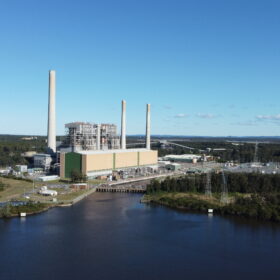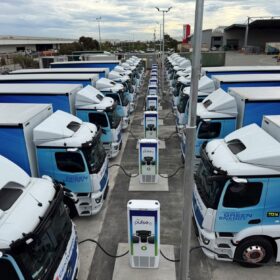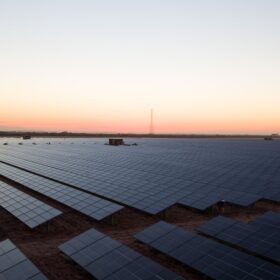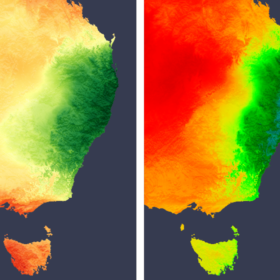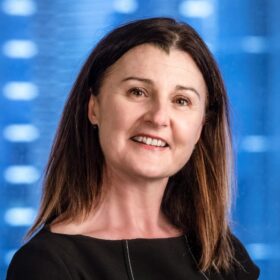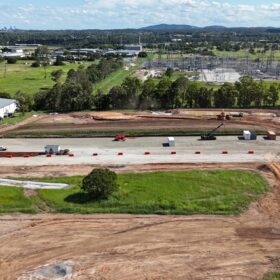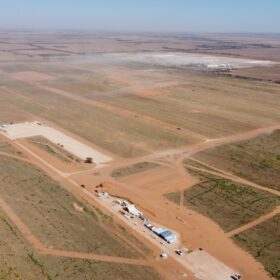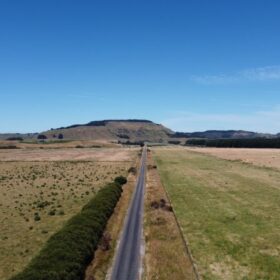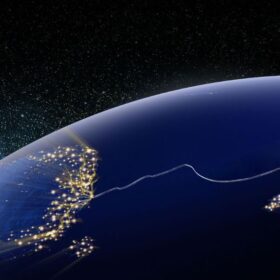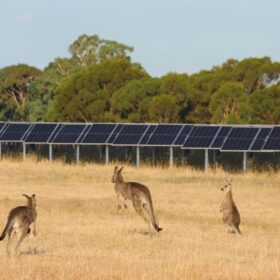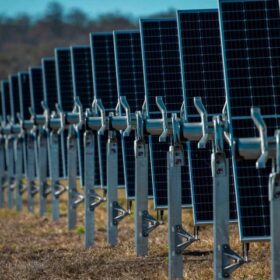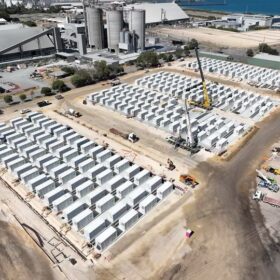Delta joins Samsung to explore battery project at coal power station site
Vales Point power station owner Delta Electricity has teamed with South Korean industrial conglomerate Samsung to develop a large-scale battery project alongside the aging coal-fired plant in New South Wales.
Freight provider rolls out electric trucks on metro routes
National transport and logistics company Centurion has added 20 battery-electric trucks from Daimler to its fleet with the new heavy vehicles powered using energy from a 4.4 MW rooftop solar installation and 10.3 MWh battery.
Greenough River project tops utility PV performance table
The 40 MW Greenough River Solar Farm in Western Australia has been identified by energy consultancy Rystad Energy as the best performing large-scale PV asset in Australia last month.
Solar generation faces major disruptions from TC Alfred
DNV company Solcast reports that solar generation in parts of eastern Australia is set to face significant disruptions as Tropical Cyclone Alfred hits the Queensland coast. Other areas may benefit from enhanced solar irradiance due to stabilising atmospheric conditions on the cyclone’s periphery.
Women now a ‘must have’ in energy workforce
As any industry goes through an evolution, its workforce needs to do the same. Australia’s energy sector is going through major changes. Fueled by strong government and private sector investment along with rising community demand and expectations, the industry needs to ensure it has the skills our future energy network requires. And the only way it is going to do that is by attracting more women into the industry.
Quinbrook seeks renewable power ‘holy grail’ with eight-hour battery tech
Australian green infrastructure investor Quinbrook Infrastructure Partners has announced it will roll out at least 3 GW of newly designed eight-hour duration battery energy storage systems across the country as it seeks to realise the “holy grail” of 24/7 cheap, renewable power.
GRS wins contract to build 171 MW solar farm in Victoria
Spanish group Gransolar says its construction subsidiary GRS has landed the contract to build the 171 MW Carwarp Solar Farm in Victoria, its 14th large-scale project in the Australian market.
NZ developer lands council consent for 110 MW solar project
New Zealand renewables developer Helios Energy has secured resource consent for a 110 MW solar farm planned for the nation’s North Island, a project the company rates as a priority in its development pipeline.
Taslink plans deep-sea cable to connect Australia and NZ grids
New Zealand venture Taslink has announced ambitions plans to build a 2 GW to 3 GW capacity high-voltage cable linking Australia and New Zealand to facilitate the day-to-day trading of electricity between the two nations.
European Energy achieves first in Australian market
Denmark-based European Energy, which has more than 5 GW of renewable energy capacity under development in Australia, has completed its first PV project in the country with the commissioning of the 58 MW Mokoan Solar Farm in Victoria.

